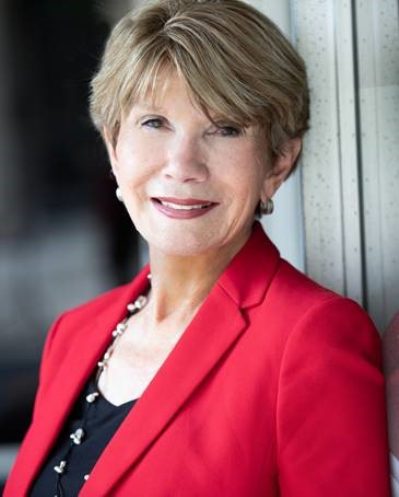Realtor Q&A: What’s Happening Now & What’s Ahead?
By • March 13, 2024 0 528

We asked three local realtors about the current market and what they think the future will hold. Our questions are below, followed by their responses and insights, edited for space and clarity.
Our Questions:
- Have interest rates really affected sales in Georgetown?
2. Do most people who buy in Georgetown pay cash?
3. How will the election impact property values, depending on whether Trump or Biden is elected?
4. Do buyers prefer to buy a turnkey home or a fixer-upper?
5. What’s the most helpful technology you use today to sell a home?
6. Aside from the MLS, do you prefer Redfin, Zillow, Homesnap or any other app for research?
Donna Evers, Managing Broker, Long & Foster

Courtesy of Donna Evers.
Property values in our city will not be impacted much by the election. Biden’s positive ratings are high in this city and Trump’s are low, so a Trump victory may dampen the local market somewhat. I say “may” because we have enjoyed such a hot market that even a Trump victory would not do much to dampen buyer enthusiasm.
Buyers like everything to look beautiful and to not have to do much to get the house the way they want to live in it. Hence the popularity and high per-square-footage pricing on new builds (if you can find any!). Everybody is in the mood to start living the life they want right now. Conversely, this is a very bad market for fixer-uppers, unless a builder can buy one for the right price, renovate it and make a profit on it.
Bright is still the biggest and best clearing house for area properties. Zillow allows public access to much of the same information that Bright offers to real estate professionals, and it is how most buyers “tune in.”
Nancy Taylor Bubes, Principal, The NTB Group, Washington Fine Properties

Interest rates have affected sales in Georgetown. It’s two-fold. Since they are higher, sellers are locked up in their house with their low rates, and it has put pressure on our inventory. Of course, so many buyers have less buying power with the higher rates, so we do have a reduced seller and buyer pool.
One would assume [buyers in Georgetown] are all-cash, but they are financed. Buyers are more likely to put in more cash when rates are higher.
I have been selling for 38 years and have seen many elections and never are sure. Generally when a president gets reelected, there is very little turnover. When a new party comes in, our greatest demand is on rentals immediately. Generally more sales occur a year later, once they get settled down in their jobs.
Younger buyers generally prefer buying something that they can add value to and do some improvements over time. The empty-nester buyer wants redone. Those in the middle buy what works for them and, generally speaking, in a historical neighborhood, it means it’s going to need work.
You know you would think it’s such a high-tech world, but real estate still has a lot to do with feel and touch. We use a lot of social media platforms, as they are colorful and eye-catching, but not sure they move the needle. Our buyer is still looking online at virtual tours and videos as they always did. During Covid, we did a video of every house, which we really didn’t before. Those views by buyers have decreased some. Most people are in a rush always, so they just prefer flipping through photos at their own rate and not committing to a video.
Homesnap (which has now become Homes.com) was a big advertiser during the Super Bowl — it’s very user-friendly. Secondly, I think Zillow is still a big favorite.
Daniel Heider, CEO & Founder, Heider, and EVP, TTR Sotheby’s

Photo courtesy of Daniel Heider.
While interest rates may impact affordability for potential buyers, Georgetown’s market tends to attract more affluent buyers, who tend to be less sensitive to fluctuations in interest rates as compared to other submarkets within the city. We have seen a direct correlation between consumer confidence and interest rates. As rates decrease, consumer confidence goes up.
Cash transactions have historically punctuated the upper-bracket Georgetown market, however, they’re not the dominant force overall. Many buyers, predominantly in the sub-$3,000,000 range, choose to finance.
A common misconception is that shifts in administration play a bigger role in our market than they actually do. The reality is that most incoming government staffers do not purchase for a host of reasons, mainly because their salaries are prohibitive, and they are unsure of how long their administration will be in office. The rental market is more broadly impacted. There have been exceptions, of course. In 2016, we saw a surge in our very upper-bracket market, which included Georgetown. Will that repeat itself? Nobody knows for sure. I sense that the overall desirability of Georgetown will transcend political fluctuations.
While Georgetown buyers can agree on a general affinity for historic charm from the curb, there’s a trend toward turnkey homes due to the convenience and time-saving aspect. There’s of course a niche market for fixer-uppers, particularly among investors and buyers looking for customization opportunities. However, “newness” is king.
The most popular listings sell. Attention is everything, and social media is unquestionably where all the attention is. Leveraging social media is by far the most relevant and beneficial tool an agent can use to help drive sales. A lesser-known fact is that our company, Heider Real Estate, is the world’s most followed real estate practice across social media. We have a global audience of over four million people and are headquartered right in the heart of Georgetown on the corner of 26th and P Streets.
Georgetownpropertylistings.com is our go-to client resource for all things Georgetown. Our partner Melanie Hayes has done a phenomenal job curating a site specifically tailored to the Georgetown market.

